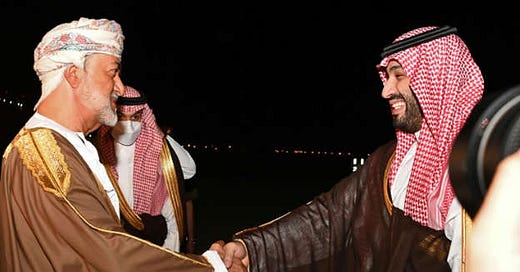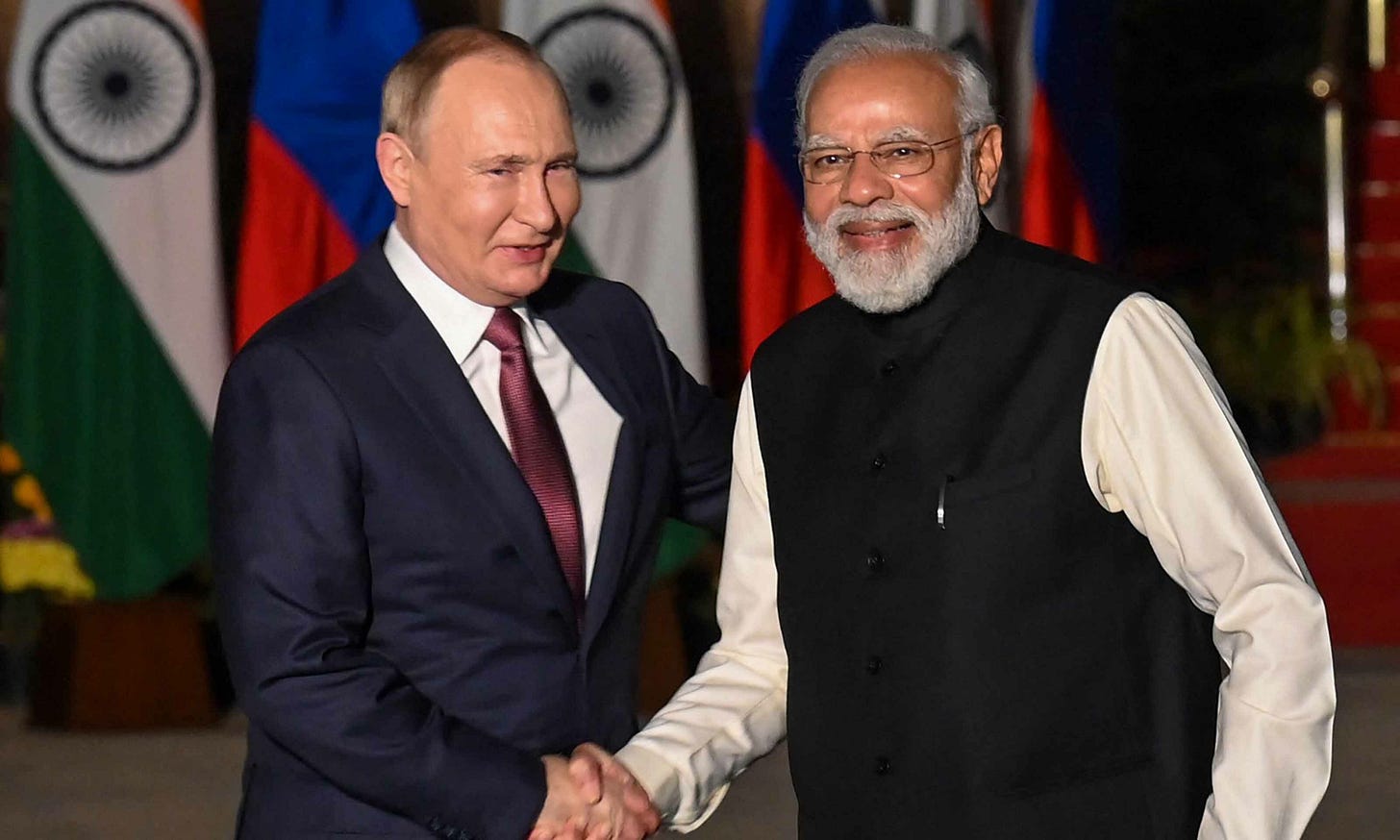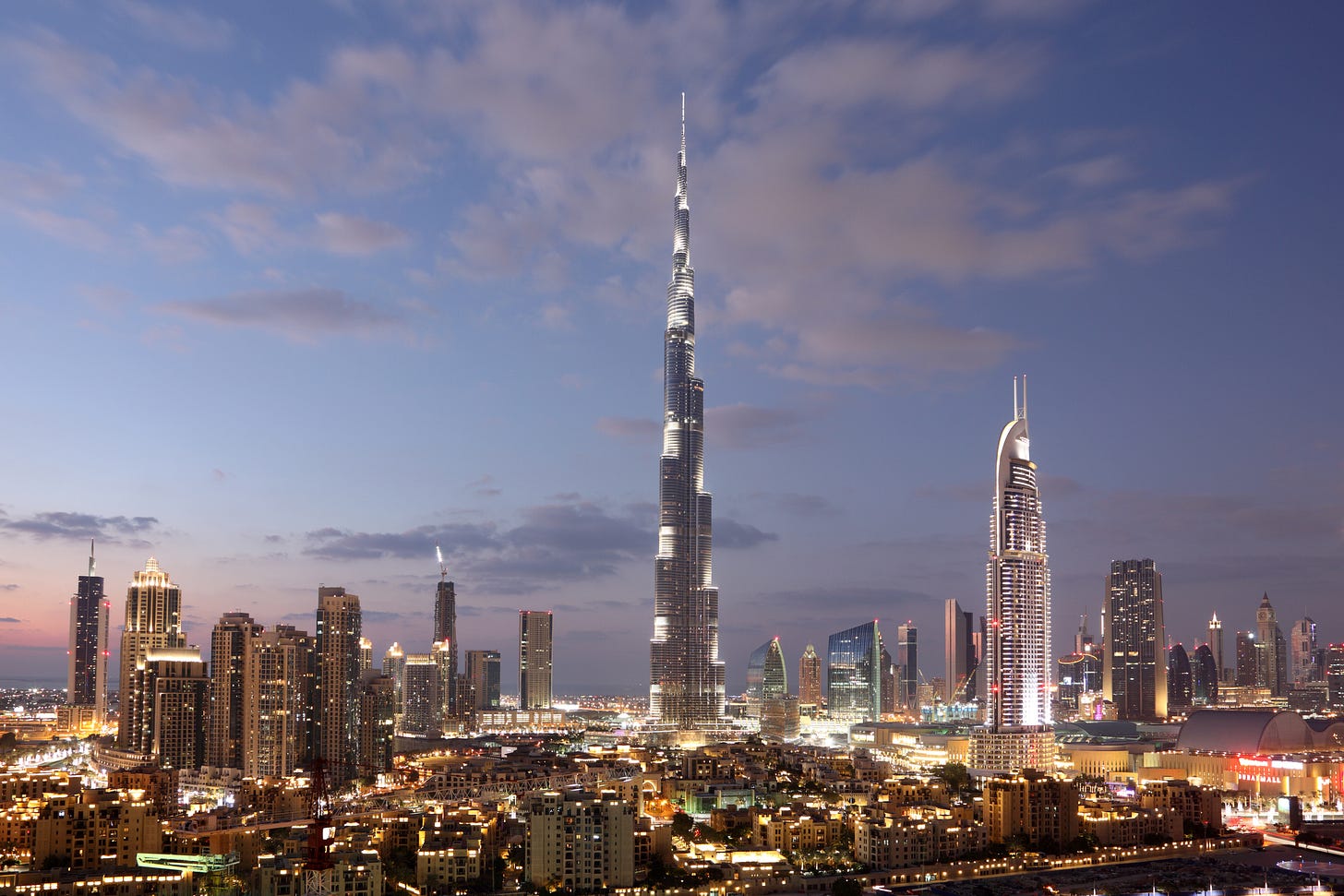Emerging Markets Daily - December 7
Saudi CP on Landmark Gulf Tour, China Signals Less Tech Crackdowns, Peru Prez Faces Impeachment, Putin in Delhi Signs Defense Deal, Russia and Ukraine
The Top 5 Stories Shaping Emerging Markets from Global Media - December 7
Saudi Crown Prince Tours Gulf Arab States; Landmark Visits to Qatar and Oman
Wall Street Journal
“Saudi Arabia’s Crown Prince Mohammed bin Salman embarked on a rare tour of the Persian Gulf region in a bid to shore up his position with neighboring allies and build consensus on the threat posed by rival Iran as world powers hold talks to revive the 2015 nuclear deal.”
“As he arrived in Oman on Monday for talks with the country’s ruler, Saudi air defenses intercepted ballistic missiles above Riyadh and a southern border city. The Defense Ministry blamed Iran-aligned Houthi rebels in Yemen and said shrapnel had fallen on some residential districts in the capital without causing damage.”
“Prince Mohammed’s five-day trip includes stops in the United Arab Emirates, Kuwait, Bahrain and Qatar for the first time since Riyadh and its regional allies resolved a dispute with Doha earlier this year.”
“The visits come after talks in Vienna to salvage the nuclear deal between Iran, the U.S. and other world powers stalled last week. The Gulf states aren’t eager for military confrontation with Tehran, but worry that even if world powers agree a deal, Iran’s support for armed groups across the region and its deployment of drones and ballistic missiles will continue to endanger their security. ‘Among the topics that will be discussed is how to effectively address the ongoing Iranian threat,’ a senior Saudi official said…”
“Separately, the U.A.E.’s national security adviser, Sheikh Tahnoun bin Zayed al Nahyan, met Monday in Tehran with President Ebrahim Raisi, becoming the most senior Emirati official to publicly visit the Islamic Republic in eight years. That follows last week’s meeting in Ankara between Abu Dhabi’s crown prince and Turkish President Recip Tayyip Erdogan, as the U.A.E. looks to de-escalate tensions with regional rivals…”
“Just ahead of Prince Mohammed’s visit to Qatar on Wednesday, Mr. Erdogan will also visit the country to discuss Turkey’s relationship with the Gulf, according to Qatari officials. ‘Both Erdogan and MBS have expressed to the Qatari emir that they want to have stronger ties and restore trade,’ a senior Qatari adviser said.” The WSJ reports.
China Emphasizes Economic Stability, Not More Tech Crackdowns, in 2022 Plans
South China Morning Post
“China’s top policymaking body emphasised the country’s drive for technological self-sufficiency and innovation to address economic growth in 2022, shunning mentions of antitrust and the ‘disorderly expansion of capital’ that 12 months ago signaled a tumultuous year of crackdowns on the technology sector.”
“Speeding up the implementation of technology policies, tackling key technologies and improving supply chain resilience are among Beijing’s top economic goals for the year ahead, according to meeting notes from Monday of the Communist Party’s 25-member Politburo, chaired by President Xi Jinping, that were published by state-run Xinhua News Agency…”
“The policy shift comes after political crackdowns have taken a toll on China’s once high-flying tech sector. In a series of sweeping legislative and regulatory moves this year, Beijing has targeted Big Tech companies over monopolistic practices, private online tutoring, video games, data and cybersecurity practises and cryptocurrency mining. The string of bad news has hammered Chinese tech stocks on the Hong Kong stock exchange, wiping out more than US$1 trillion in value.”
“Those moves were foreshadowed by the same Politburo meeting last year, which identified tackling the ‘disorderly expansion of capital’ and monopolistic practises as key economic goals for 2021. The meeting took place a month after Beijing scuttled the highly anticipated initial public offering of Ant Group, the fintech affiliate of Alibaba Group Holding, owner of the South China Morning Post.” SCMP reports.
Peru Leftwing President Faces Possible Impeachment After Rocky Start
Financial Times
“Peru’s president Pedro Castillo is facing possible impeachment just four months into the job as his chaotic leftwing government stumbles from one crisis to another. Lawmakers are due to vote on Tuesday on whether to start proceedings against him, and although the motion looks unlikely to prosper, the opposition seems certain to launch other, similar attempts in the new year.”
“‘It’s not whether he’ll be impeached but when,’ said Denisse Rodríguez-Olivari, a Peruvian political scientist. ‘That’s the question. Because there’ve been too many mistakes too soon in his government.’ The president’s approval rating, which peaked at 40 per cent in September, has sunk to 25 per cent, according to a recent poll by the Institute of Peruvian Studies.”
“Castillo has lost majority backing in every demographic, including rural and poor voters who were the bastion of his support. According to a survey by Ipsos, some 60 per cent want Peruvian lawmakers to at least debate the impeachment motion, which lists half a dozen reasons why Castillo should not stay in office, from alleged illegal campaign financing to his decision to resume relations with Nicolás Maduro’s Venezuela. Some 30 per cent think he should be removed from office.”
“The opposition would need a two-thirds majority in congress to remove Castillo from power, which looks unlikely for now, but Peru has a record of impeaching its presidents. The peculiarly-worded constitution makes it relatively easy to get rid of them.”
“A farmer and schoolteacher from a poor, remote village in Peru’s northern highlands, Castillo had no previous experience of public office when he won election in June. His administration was plagued by controversy from the start when he named a Marxist hardliner as his prime minister. Guido Bellido lasted just 69 days.” The FT reports.
India, Russia Sign Ten Year Defense Pact During Putin Visit to Delhi
CNBC
“India and Russia on Monday signed more than two dozens deals across a variety of sectors and inked a 10-year defense cooperation pact. The 28 agreements concluded Russian President Vladimir Putin’s visit to New Delhi and meeting with Indian Prime Minister Narendra Modi during the 21st India-Russia annual summit.”
“‘The diversity of agreements and [memorandum of understandings] signed today shows the multi-faceted nature of our bilateral partnership,’ India’s Foreign Secretary Harsh Vardhan Shringla said Monday at a press briefing. The deals cover a wide range of areas including trade, energy, science and technology, education and intellectual property. ‘India and Russia have also signed a program of cooperation in the field of defense for the next ten years, 2021 to 2031,’ he added.”
“The two countries have also set a target for $30 billion in trade and $50 billion in investment by 2025. Russian Foreign Minister Sergey Lavrov and Defense Minister Sergei Shoigu also met their Indian counterparts prior to Putin and Modi’s meeting.”
“Putin’s visit to India comes at a time when Russia’s relationship with the United States remains strained. For his part, Modi met U.S. President Joe Biden in September and attended the first in-person Quad Leaders Summit hosted by Biden. The United States considers India as a key ally in the Asia-Pacific to counter China’s growing influence in the region.”
“Monday’s meeting between Modi and Putin demonstrated that India wants to keep its options open, according to Richard Rossow, the Wadhwani chair in U.S.-India policy studies at the Center for Strategic and International Studies. ‘India’s concerned about the reliability of the United States as a partner, not just in defense space, but we have been raising concerns about religious tolerance and things in India,’ Rossow told CNBC’s “Squawk Box Asia” on Tuesday.” CNBC reports.
Western Nations Urge Russia to Lower Ukraine Tensions
BBC
“Western powers have called on Russia to lower tensions with Ukraine, ahead of a video call between US Joe President Biden and Russia's Vladimir Putin. Responding to fears of a Russian invasion, Mr Biden agreed with leaders of the UK, France, Germany and Italy to use ‘all the tools at their disposal.’”
“Moscow denies it has plans to attack. But Russia has moved thousands of troops near Ukraine's eastern borders, and Ukraine says tanks have been moved to the front line inside its territory. Hours before the video talks scheduled for 15:00 GMT, it appeared Washington was not planning a US military response, but focusing instead on tough economic sanctions.”
“In a conference call on Monday night, the White House said the five Western leaders had formed a joint strategy ‘to impose significant and severe harm on the Russian economy’ should Russia launch an invasion. They ‘reaffirmed their staunch support for Ukraine's territorial integrity’, Downing Street said.”
“Possible measures include restrictions on Russia's banks converting roubles into foreign currencies, or even disconnecting Russia from the Swift global financial payment system, reports say.” BBC reports.
“It always seems impossible until it's done.” - Nelson Mandela
What We’re Also Reading…
UAE Moves to 4.5 Day Work Week, Switches Weekend to Saturday and Sunday
Bloomberg
“The United Arab Emirates will move its weekend to Saturday and Sunday, breaking ranks with the rest of the Gulf region as it seeks to draw in global investment and business.”
“The nation will enact the change starting Jan. 1, adopting a 4 1/2-day working week, with Friday -- a holy day in Islam -- being a half day, the federal government said in a statement. The UAE and the rest of the Gulf nations, including Saudi Arabia, currently have a Sunday-to-Thursday working week.”
“The change marks a further step in efforts by the UAE, of which Abu Dhabi and Dubai are a part, to maintain its status as the Gulf’s pre-eminent business hub. Regional competition from neighboring Saudi Arabia is rising as the oil-producing heavyweight engages in an unprecedented drive to attract overseas investment and diversify its economy.’
“‘This will align the UAE with global markets and make it easier for international corporations to do business,’ said Nabil Alyousuf, chief executive officer of Dubai-based International Advisory Group. It ‘will increase the number of days we do business with the rest of the world, which will boost trade.’”
“The government didn’t say in its statement Tuesday whether the private sector would have to adopt the new 4 1/2-day week. It wasn’t clear either how the change will affect the school week, which analysts say will be key to determining how the private sector adjusts. ‘The private sector will have flexibility to decide the weekend,’ Abdulrahman Al Awar, director general of the Federal Authority for Government Human Resources, said in an interview with Asharq TV. The country’s labor law allocates a maximum of 48 hours per working week and a minimum of one day off per week, he said.” Bloomberg reports.





